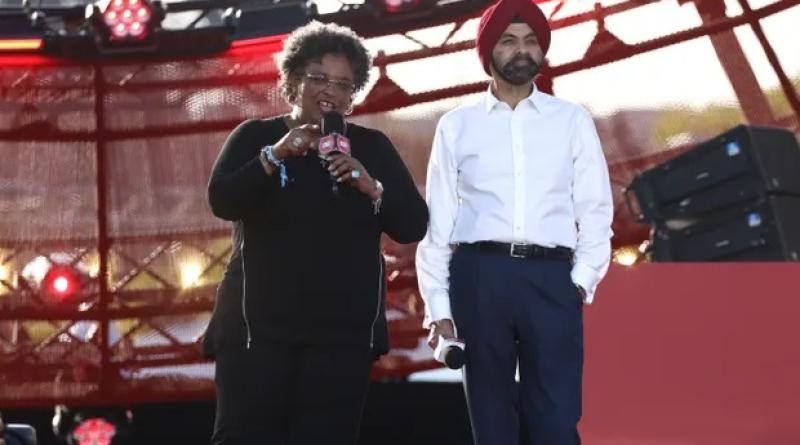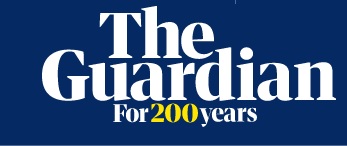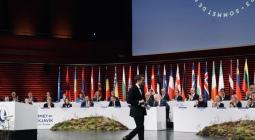Paris finance reforms could untie poor countries’ hands in climate crisis

The Netherlands has almost the same amount of solar generating capacity as the whole continent of Africa. That must be, in part, because the interest on a loan to set up a windfarm in Africa is about 17% more than one to do the same in Europe.
Many poor countries enjoy vast natural resources of wind and sun yet struggle to access renewable energy because of the crippling cost of capital imposed on them. Private sector companies perceive far greater risk in poor countries, penalising most heavily the countries in greatest need of investment.
These deep inequalities are hampering the world’s ability to tackle the climate crisis. Developing countries, apart from major economies such as China, currently account for the minority of global greenhouse gas emissions (although for most of the growth in emissions).
They also bear the brunt of the climate crisis, even though they are spending an increasing slice of their meagre budgets on adapting to its impacts. The climate crisis is driving countries that are already in trouble over the edge, reversing decades of progress on poverty, health and education.
Add to this that many poor countries are stuck in a debt trap, and the vice grips more tightly with rising interest rates and the strong dollar.
Kristalina Georgieva, the managing director of the International Monetary Fund, said: “Interest rates are up and debt burdens are rising. The cost of living is high, poverty and inequality are increasing, and the consequences of the climate crisis are upon us, and they hit hardest poor people in vulnerable countries that have done the least to cause this problem. So it is time to step up.”
For all these reasons, the world must achieve “not just reform but an absolute transformation” of the international system of public finance, in the words of Mia Mottley, the prime minister of Barbados. Overseas development aid is about $200bn a year. But to shift the world to a low-carbon footing will require many times that.
The economists Nicholas Stern and Vera Songwe calculated last year that about $2.4tn would be needed each year for developing countries, excluding China, to help them cut emissions and cope with the impacts of the climate crisis. This sum seems huge, but in reality it is not much more than is currently invested in high-carbon industries and infrastructure.
That is why the reforms to the World Bank agreed at the Paris finance summit this week are so important. They will result in an estimated $200bn in new lending capacity, and this money can be used to attract far more from the private sector.
If the World Bank can be seen as the first loss guarantor of investment – that is, if projects get into trouble, it is the World Bank’s money that is lost first, while private investors can expect to recoup theirs – that could lead to the $1.4tn that Mottley says is needed.
Getting private sector investment for wind and solar farms is relatively easy as these projects produce clear revenues. But countries also urgently need to adapt to the impacts of the climate crisis, and the worst-hit countries need money for rescue and reconstruction, known as loss and damage funding.
Though these efforts – such as regrowing mangrove swamps or rebuilding village schools – are vital for people’s lives and security, they produce no clear revenues, and the private sector is unlikely to be interested.
So money must be found from other sources including, potentially, taxes on shipping, aviation, fossil fuels and wealth. A tax on emissions from shipping alone, seen as possibly the easiest of these to implement, could raise as much as $5bn a year and would pay into the loss and damage fund, to rescue and reconstruct poor countries stricken by climate disaster.
The governments meeting in Paris acknowledge that new forms of revenue, including potentially new taxes, will be needed. But getting to those global taxes will probably be a daunting uphill struggle. For instance, the two top US officials at the Paris finance summit – Janet Yellen, the treasury secretary, and John Kerry, the special presidential envoy for climate – signalled a positive stance towards a shipping tax. But any such moves will have to pass a Republican-dominated Congress and that looks all but impossible for the Biden administration.
The French president, Emmanuel Macron, hailed the “unity” at the end of the conference, when rich and poor alike agreed that the world must overhaul the global response to poverty, development and the climate, which are all closely interconnected.
Yet the rifts between the poor and the rich world are much in evidence, and time is running out to heal them. Cyril Ramaphosa, the president of South Africa, said: “Africa should never be seen as a continent that needs generosity. We want to be treated as equals. [In the pandemic] we felt like we were beggars. That generated a lot of resentment.”
That resentment was never going to be assuaged at one conference, and Macron acknowledged from the start the role of the Paris summit would be to set a “roadmap” rather than produce all the answers. Governments will meet next week at the International Maritime Organization for the next big test, when they will discuss the potential tax on shipping, and then at the G20 in September and at Cop28 in November.
But even with the clock ticking, without assurance of a real transformation in the global financial system, the lack of trust between developed and developing countries could be the rock on which Cop28 founders.
cover photo:Mia Mottley, the prime minister of Barbados, and Ajay Banga, the president of the World Bank on stage at the Power our Planet concert in Paris on Thursday. Photograph: Tom Nicholson/Shutterstock







